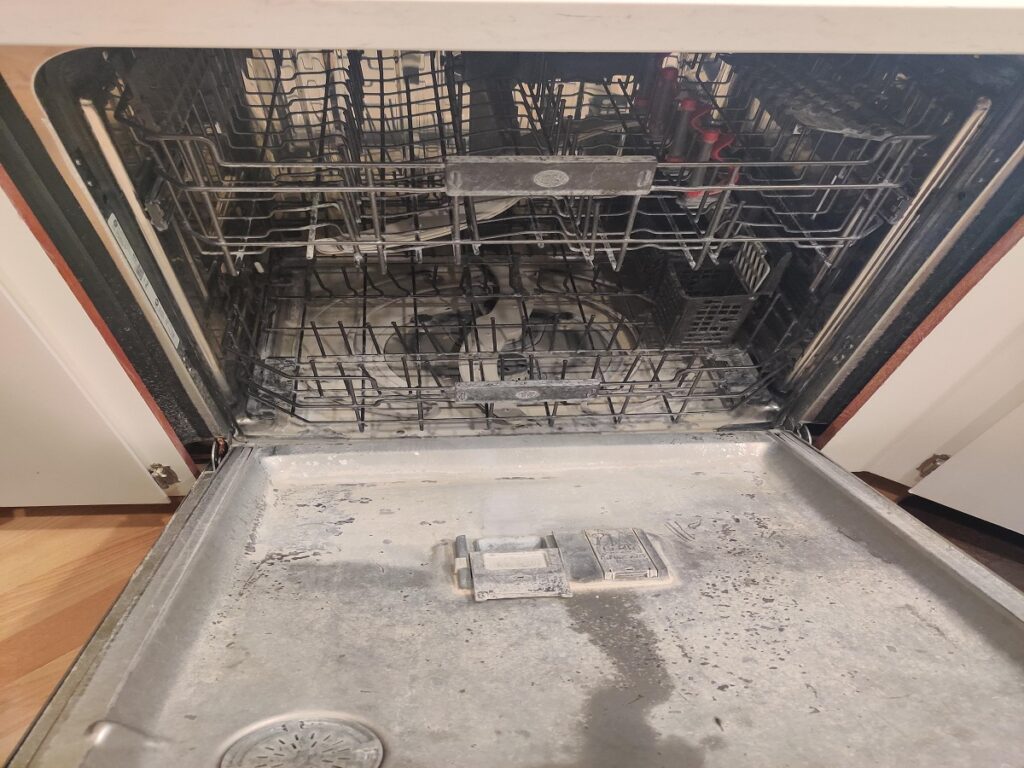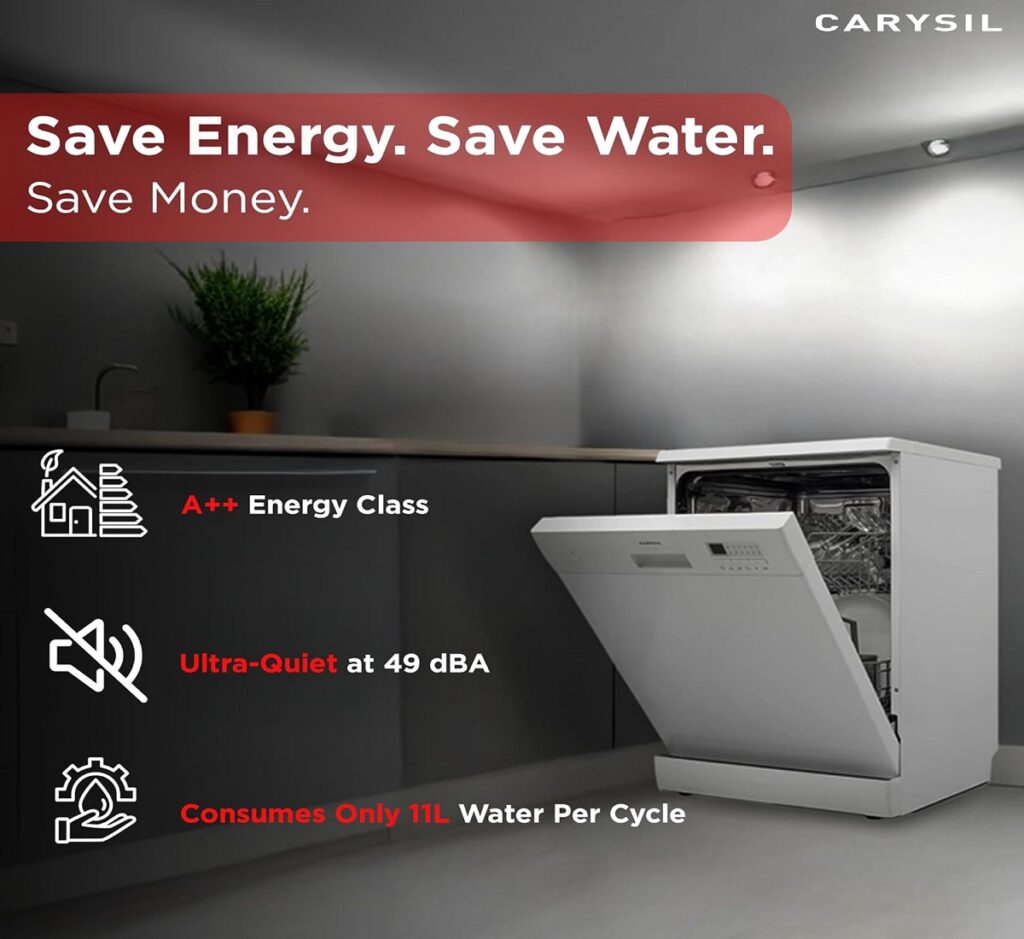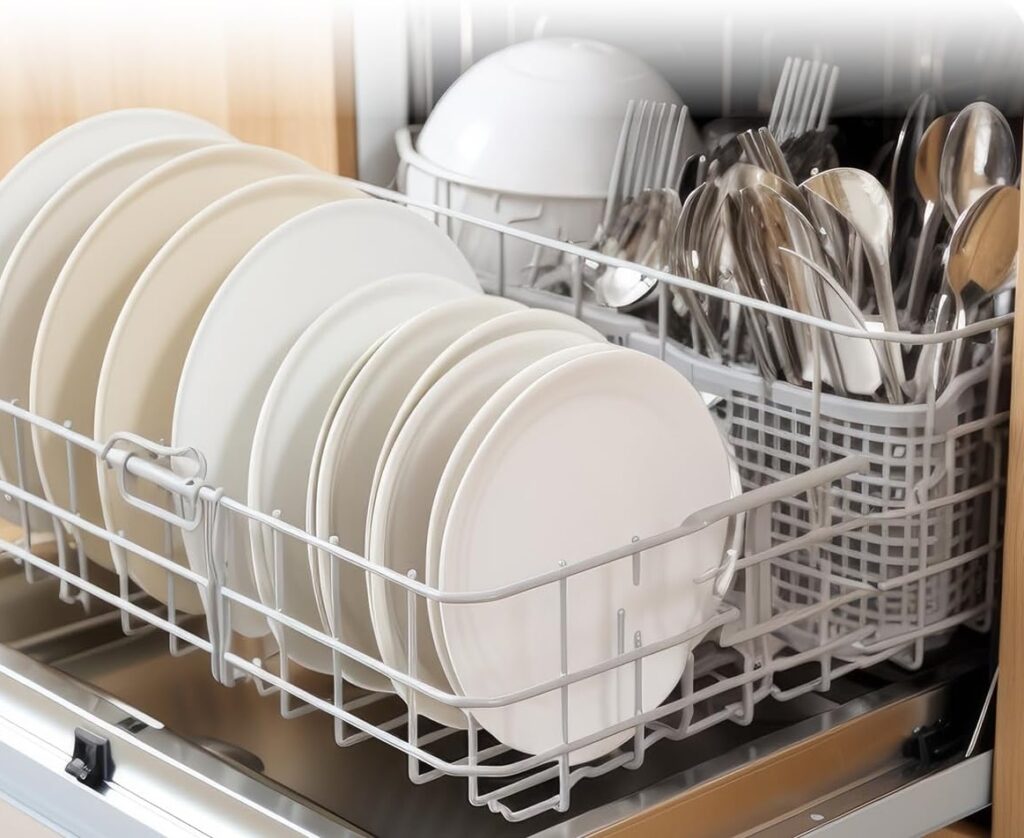Modern dishwashers are designed for efficiency, but sometimes they seem to drag along, taking far longer than when they were new. If your dishwasher suddenly needs extra time to finish a cycle, it can be frustrating and puzzling. Several factors, from the buildup of grime to technological design changes, can affect cycle length. Understanding these reasons can help you troubleshoot and optimize performance, saving both time and energy in the long run. Let’s explore why your dishwasher might be running slower than before.
Hard Water Buildup

Over time, minerals in hard water, such as calcium and magnesium, can accumulate inside your dishwasher. This buildup coats spray arms, filters, and heating elements, reducing efficiency. When spray holes are partially blocked, water cannot circulate properly, forcing the dishwasher to extend its cycle to clean dishes effectively. Using a water softener or descaling solution periodically can help reduce buildup. Regular cleaning ensures your dishwasher maintains proper pressure and heat distribution, which shortens wash times and keeps performance consistent.
Clogged Filters and Spray Arms
Dishwashers rely on clean filters and unobstructed spray arms to function optimally. Food particles, grease, and debris can block filters and tiny holes in the spray arms. When water cannot circulate properly, the machine compensates by extending the washing and rinsing cycles. Cleaning filters every few weeks and inspecting spray arms for blockages can restore normal cycle lengths. Even minor clogs can dramatically slow down performance, making this simple maintenance step one of the most effective ways to speed up your dishwasher.
Older Appliances Naturally Slow Down
As dishwashers age, wear and tear on pumps, motors, and heating elements can reduce efficiency. Components may operate slightly slower or less powerfully than when new, causing cycles to take longer. Older machines also tend to accumulate grease, limescale, and debris that further slow performance. While these appliances can still clean effectively, they often require extra time to maintain the same results. Routine maintenance, occasional part replacement, or upgrading to a newer model can help restore or improve efficiency.
Energy-Efficient Wash Cycles

Modern dishwashers increasingly prioritize energy and water efficiency. Many models now include eco-friendly cycles designed to use less water and lower temperatures. While this reduces utility costs, it often increases cycle duration. An eco-cycle may take up to two hours longer than a standard cycle, but still cleans thoroughly. Choosing faster cycles for lightly soiled dishes or saving eco-cycles for heavily loaded washes can help balance energy savings with convenience, explaining why your dishwasher sometimes seems slower than in the past.
High-Temperature Rinse Requirements

Some dishwashers automatically adjust cycle length based on water temperature and load size. If the incoming water is cooler than expected, the machine may extend the preheating and washing stages to ensure proper cleaning. This is particularly common in homes with low water heater settings or when multiple appliances are running simultaneously. Ensuring a consistent hot water supply and setting your water heater to an adequate temperature can reduce these delays and help your dishwasher complete cycles in a more predictable timeframe.
Overloading or Improper Loading

A dishwasher’s efficiency depends heavily on how dishes are arranged. Overloading or placing items incorrectly can block spray paths, forcing the machine to extend its cycle to ensure thorough cleaning. Large pots, pans, or oddly shaped items may prevent water from reaching all surfaces efficiently. Loading dishes according to the manufacturer’s guidelines, avoiding overlap, and spacing items can improve water circulation and reduce cycle time. Proper loading habits are simple yet crucial for maintaining optimal dishwasher performance over time.
Detergent and Rinse Aid Choices

The type and quality of detergent can affect wash time. Some concentrated or eco-friendly detergents dissolve more slowly, requiring longer cycles to achieve clean results. Similarly, rinse aid helps reduce water spotting but may also influence how quickly dishes dry. Using the right detergent for your water type and load can prevent prolonged cycles. Experimenting with different brands or adjusting rinse aid settings may help. Even subtle changes in chemistry can have noticeable effects on cycle duration, especially in older machines.
Sensor and Control Malfunctions
Modern dishwashers often use sensors to detect soil levels, water clarity, and temperature. If sensors malfunction or become dirty, the machine may misread conditions, extending cycles unnecessarily. For example, it may assume dishes are still dirty and add extra rinses or washes. Cleaning sensors and checking electronic controls can restore normal operation. In some cases, professional repair may be required. Even a small sensor error can add 30–60 minutes or more to a wash cycle, making this an often overlooked source of delays.
Drainage Issues
Efficient drainage is essential for a timely dishwasher cycle. Slow or partially blocked drains, clogged air gaps, or kinked hoses can prevent water from exiting quickly, triggering longer wash and rinse phases. The machine may repeatedly pump water to maintain cleanliness, extending the total cycle time. Checking hoses, drains, and garbage disposals for blockages is key to resolving these delays. Ensuring proper slope and clear passage helps water flow freely, reducing unnecessary extended cycles caused by drainage problems.
Software and Firmware Updates
Some newer dishwashers rely on software to manage cycles. Manufacturers occasionally release firmware updates to optimize performance, adjust cycle durations, or improve energy efficiency. If your machine is outdated or has missed updates, it may run longer than necessary. Consulting the user manual or the manufacturer’s website for available updates can restore faster operation. These digital adjustments can make a surprising difference, as modern dishwashers increasingly rely on precise programming to balance cleaning performance with energy conservation.
Comments